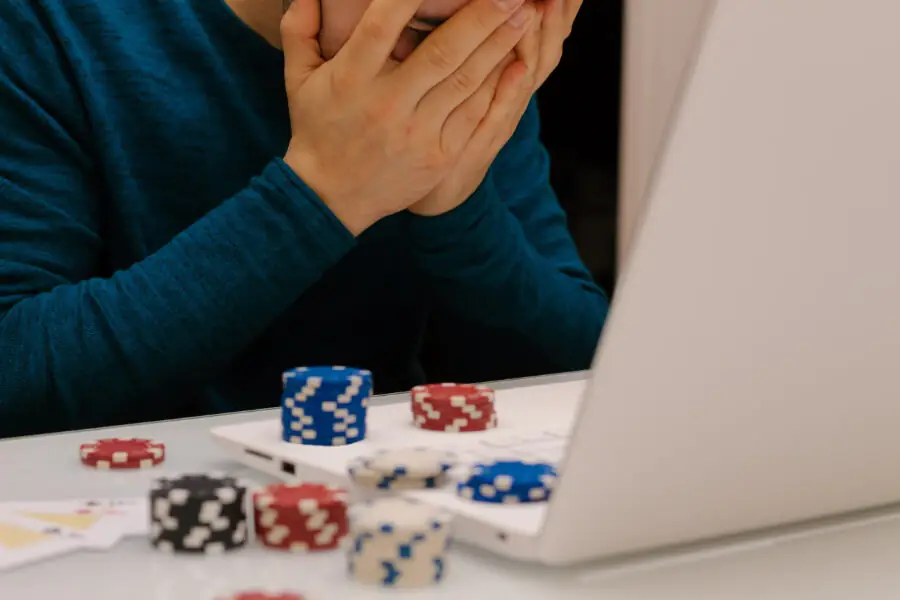
Psychological Impact of Jackpot Wins on Gambling Behavior
The reward of winning a jackpot is often anticipated when participating in gambling activities. Jackpots can be won in various ways, commonly through competitions or games, with lotteries being a well-known example of a game with a jackpot prize. In the gambling industry, jackpots can also be found in slots as in-game bonuses, as well as in games like blackjack.
Jackpots are usually very-low probability and high-reward type of prizes. The anticipation of a reward is what motivates people to pursue the jackpot, often much more than the reward itself. Numerous problematic gamblers continue gambling because they like the thrill, uncertainty, and excitement of the game – not necessarily because all they want to do is win a lot of money.
Even the smallest jackpots are incredibly hard to win – with odds being 1 to 5,000 against you – with the biggest jackpots coming at the incredible odds of 1 to 34,000,000.
Immediate Psychological Effects of Jackpot Wins
Winning the jackpot can be an emotional rollercoaster. The winner is likely to experience a flow of extremely positive emotions.The experience can provide a certain level of empowerment and validation, thus enhancing one’s sense of self-worth. Some people don’t only experience joy, but also shock and disbelief. In addition to euphoria, it is not uncommon for negative emotions to be felt. Strong feelings that an individual is not prepared for the upcoming change can be overwhelming to say the least. The influence of money on people’s well-being can be a double-edged sword for many, as anxiety sets in.
The “gambler’s high” characterized by a rush of positive emotions can result in the continuation of gambling, and this is a very good indicator that what gamblers are after is not necessarily or only money, but the excitement of expecting a win and not knowing whether one is going to win.
Long-Term Psychological Impact on Gambling Behavior
Main Symptoms
Near misses and excitement-seeking cause gamblers to play for longer and place ever larger bets. Over time, distorted perception of one’s chances of winning may lead to “loss chasing”, where gamblers continue to play in an effort to alleviate the accumulating debt. Loss chasing is usually what precipitates debt accumulation among gamblers, and it is similar to some phenomena we encounter in drug addiction where drug addicts continue using drugs to cope with the consequences of drug abuse. Gamblers may also experience cravings and symptoms of withdrawal when denied the opportunity to gamble, which is why gambling can become an addiction like any other.
Vicious Cycle of Gambling Problems
Chasing the next jackpot and not attaining it, a lot of gamblers experience heightened anxiety and depression, and the stress of financial strain can lead to social withdrawal, strained relationships, and isolation. Gamblers’ self-perception changes too – many experience feelings of shame and guilt, which can exacerbate mental health issues. Low self-confidence is not an uncommon symptom in this context, and a lot of gamblers have low levels of motivation and productivity. In order to cope with these negative emotions, a lot of them resort to a habit that made them miserable in the first place – gambling.
Gambler’s Fallacy
Problem gamblers often interpret near-misses as evidence that they are mastering the game and that a win is on the way. This is an aspect of the so-called “gambler’s fallacy”, with gamblers having an impression that they are in control of the game and that they can make educated guesses and win money reliably.
A near win triggers a response in the brain that is similar to that of an actual win. Excitement and anticipation of a near win lead players to believe that chances of a win are very high, even though in reality the odds are obviously against them. A distorted sense of control can occur; players may begin to believe their actions are influencing the outcome, even in games of pure chance. The illusion of control leads to overconfidence and risky behavior. Sometimes, the illusion of control reaches a level where a person believes that he or she has magical power and total control over the future, with the illusion reaching the level of delusion.
Case Studies and Examples
In 1978, a group of researchers from Northwestern University and the University of Massachusetts attempted to answer the question of what happens to one’s emotional well-being after winning the lottery. They conducted interviews with two groups of people: recent lottery winners and victims of catastrophic accidents. The results showed that accident victims reported deriving more happiness from everyday pleasures than the lottery winners.
Lottery winners often become accustomed to additional pleasures made possible by their new wealth, and these pleasures no longer contribute to their overall level of happiness. Some winners have experienced a negative impact on their relationships with family and friends. For example, Jack Whittaker from West Virginia, who won millions of dollars on top of already being a millionaire when he won the lottery, not only lost all his money but had his family ravaged by drug abuse. Although previously a successful businessman, Whittaker changed after winning one of the biggest lotteries in the history of the US, losing a sense of value of money, spending it lavishly. Winners are often approached by distant relatives or long-forgotten friends who need loans, giveaways, gifts, etc. Managing a large sum of money can be quite a complex and daunting task, and as we can see in Whittaker’s example, no one’s immune. As a result, a lot of winners end up bankrupt despite winning millions.
Mitigation and Support
Handling a Big Win
Without a solid financial plan, it’s easy to get carried away and make decisions that can have long-term consequences. It’s crucial to hire a lawyer early on to minimize the risk of mishandling wealth and understand the taxes you have to pay for the money you won. Unexpected tax bills and the temptation to overspend should be carefully managed to ensure lasting financial security. Creating a budget and making smart investments can help grow the winnings and provide for the future. It would also be a good idea to hire an accountant who will help you manage your wealth so that you know exactly what you’re spending your money on.
Relationship Changes due to a Big Win
Changes in relationships, both positive and negative, should be anticipated, and boundaries should be set with anyone who might try to take advantage of the situation.[5] A sudden improvement in your financial situation will probably make a lot of people become friendly towards you. It would be a smart thing to continue socializing with the friends who liked you before you were wealthy while also being careful not to let them take advantage of your financial situation. There’s a difference between a friend who occasionally asks for small loans and pays you back on time, and a friend who constantly asks for big loans and fails to pay back.
It’s similar with family – if you want to buy a house for your parents or save money for your children’s education this isn’t necessarily a bad thing – especially if it’s your personal decision and desire. But a distant relative suddenly realizing that you two are related and coming to you to ask for an enormous loan, this can be a major red flag.
Conclusion
Winning the jackpot can be a life-changing experience, but it also requires careful management and protection of one’s wealth. Some jackpot winners try to replicate the feeling they had when they won, but considering the odds, this is nearly impossible, and they often find themselves experiencing feelings of emptiness and desperation, chasing their losses endlessly.
If you think that this could be you, there are ways to battle your negative habits, via self-exclusion programs and gambling restrictions.






